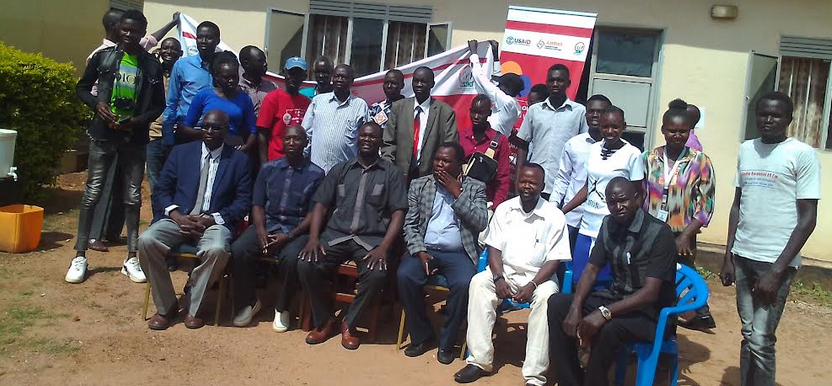At least 30 journalists have been awarded certificates on Thursday after attending a four-day training organized by the Association for Media Development in South Sudan (AMDISS) in Torit, Eastern Equatoria State.
The training focused on building the capacity of the media practitioners from both private and government-owned radio stations in the areas of media laws and ethics, conflict-sensitive journalism, gender-based violence reporting, and trauma healing.
The executive director of AMDISS, Michael Duku, speaking during the ceremony said they want to ensure that journalists are conflict-sensitive in their reporting.
“As journalists, you have to pay attention to being conflict-sensitive in your reporting. You have to ensure that whatever you are reporting is regulated by the law,” Duku advised. “We have a very critical milestone ahead of us which needs a lot of work as journalists. We are in the phase of implementing the peace agreement and you know that there are very key important milestones that we have to attain.”
“I would like to say that in Juba we are already starting to support the government to create awareness on the constitution-making process,” he added.
Duku said the writing of the permanent constitution which is in the offing should be a people-led process and the media has a critical role to play in creating awareness.
The Eastern Equatoria State information minister, Patrick Oting Cyprian, cautioned the journalists against working contrary to government regulations.
“Please be professional journalists from the way you present yourself. Do not be, be bold enough and present yourself clearly,” he said. “I want to see that our journalists are actually distinct from the crowd so that you can identify and say this is a journalist.”
Jackeline Lucky, a female journalist working for Magwi Voice of Freedom FM, said it was her first time attending such training and said she learned a lot.
“We have been learning about laws and ethics of journalism, gender-based violence reporting techniques, and so many things,” she said. “When I go out to the community as I work at the radio, it will be easy for me to give information or to educate people.”
Another trainee, Lino Akaba Amanya, the Lafon County correspondent for the state radio 97.5 FM, appealed to the ministry of information to extend such pieces of training to the counties.




